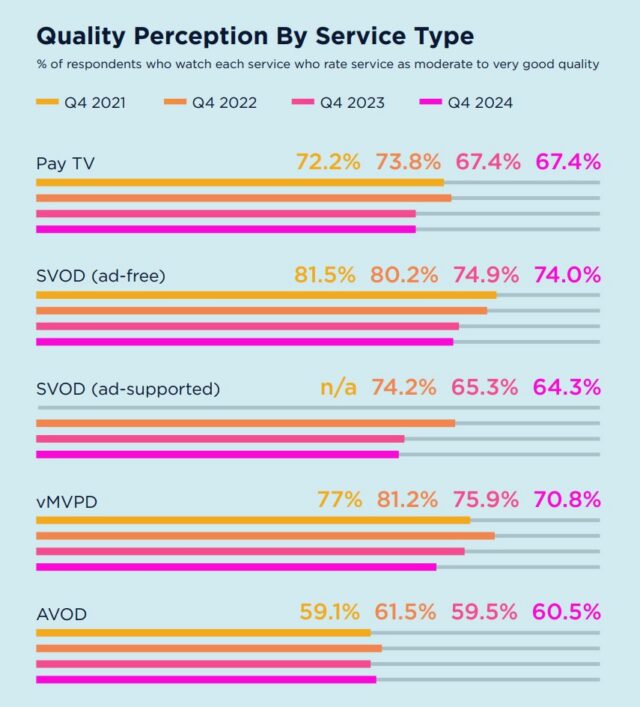- Регистрация
- 17 Февраль 2018
- Сообщения
- 38 917
- Лучшие ответы
- 0
- Реакции
- 0
- Баллы
- 2 093
Offline
People used to pay $55 a month for TV, Zaslav recalls.


A scene from the HBO original series Succession. Credit: Macall B. Polay/HBO
Someone might want to tell David Zaslav to read the room. Despite people’s ongoing frustration with the rising prices of streaming services—and just about everything else—the CEO of Warner Bros. Discovery (WBD) thinks that there is reason for HBO Max to charge more.
Zaslav shared his sentiments while speaking at the Goldman Sachs Cornucopia + Technology conference today in San Francisco. The Hollywood Reporter quoted Zaslav as saying:
The fact that this is quality—and that’s true across our company, motion picture, TV production [and] streaming quality—we all ... think that gives us a chance to raise price. We think we’re way underpriced.
Today, HBO Max starts at $10 per month with ads, $17/month for no ads, and $21/month for no ads and premium features (4K streaming, Dolby Atmos, and the ability to stream from more devices simultaneously and perform more downloads). The streaming platform has raised prices twice since launching (as Max) in May 2023. In June 2024, the Standard, ad-free plan went from $16/month to $17/month, and annual subscription fees went up by $20 or $10, depending on the plan. Subscription fees also increased in January 2023.
One of the ways the recently re-renamed HBO Max will try to make more money from its viewership is by getting tougher about subscribers sharing passwords with other households. The streaming service was supposed to crack down on password sharing in 2024, but Zaslav said today that HBO Max hasn't “been pushing” against password sharing yet. That’s largely because WBD's trying to get people to “fall in love" with HBO Max's content first, Zaslav noted.
Once viewers are seemingly hooked on HBO Max, WBD would ideally like to charge more. Per Variety, Zaslav said today that WBD has a "real ability" to raise prices as "people become more and more in love with the quality that we have, and the series that we have, and the offering that we have."
The executive reportedly recalled a time when people relied on broadcast and cable for their TV entertainment and paid more than what the average person pays for streaming today:
Consumers in America would pay twice as much 10 years ago for content. People were spending, on average, $55 for content 10 years ago, and the quality of the content, the amount of content that we’re getting, the spend is 10 or 12 fold and they’re paying dramatically less. I think we want a good deal for consumers, but I think over time, there’s real opportunity, particularly for us, in that quality area, to raise price.
A question of quality
Zaslav is arguing that the quality of the shows and movies on HBO Max warrants an eventual price bump. But, in general, viewers find streaming services are getting less impressive. A Q4 2024 report from TiVo found that the percentage of people who think the streaming services that they use have "moderate to very good quality" has been declining since Q4 2021.

From TiVO's Q4 2024 Video Trends report. Credit: TiVo
Research also points to people being at their limit when it comes to TV spending. Hub Entertainment Research’s latest “Monetizing Video” study, released last month, found that for consumers, low prices "by far still matters most to the value of a TV service."
Meanwhile, niche streaming services have been gaining popularity as streaming subscribers grow bored with the libraries of mainstream streaming platforms and/or feel like they’ve already seen the best of what those services have to offer. Antenna, a research firm focused on consumer subscription services, reported this month that specialty streaming service subscriptions increased 12 percent year over year in 2025 thus far and grew 22 percent in the first half of 2024.
Zaslav would likely claim that HBO Max is an outlier when it comes to streaming library dissatisfaction. Although WBD’s streaming business (which includes Discovery+) turned a $293 million profit and grew subscriber-related revenue (which includes ad revenues) in its most recent earnings report, investors would likely be unhappy if the company rested on its financial laurels. WBD has one of the most profitable streaming businesses, but it still trails far behind Netflix, which posted an operating income of $3.8 billion in its most recent earnings.
Still, increasing prices is rarely welcomed by customers. With many other options for streaming these days (including free ones), HBO Max will have to do more to convince people that it is worth the extra money than merely making the claim.


A scene from the HBO original series Succession. Credit: Macall B. Polay/HBO
Someone might want to tell David Zaslav to read the room. Despite people’s ongoing frustration with the rising prices of streaming services—and just about everything else—the CEO of Warner Bros. Discovery (WBD) thinks that there is reason for HBO Max to charge more.
Zaslav shared his sentiments while speaking at the Goldman Sachs Cornucopia + Technology conference today in San Francisco. The Hollywood Reporter quoted Zaslav as saying:
The fact that this is quality—and that’s true across our company, motion picture, TV production [and] streaming quality—we all ... think that gives us a chance to raise price. We think we’re way underpriced.
Today, HBO Max starts at $10 per month with ads, $17/month for no ads, and $21/month for no ads and premium features (4K streaming, Dolby Atmos, and the ability to stream from more devices simultaneously and perform more downloads). The streaming platform has raised prices twice since launching (as Max) in May 2023. In June 2024, the Standard, ad-free plan went from $16/month to $17/month, and annual subscription fees went up by $20 or $10, depending on the plan. Subscription fees also increased in January 2023.
One of the ways the recently re-renamed HBO Max will try to make more money from its viewership is by getting tougher about subscribers sharing passwords with other households. The streaming service was supposed to crack down on password sharing in 2024, but Zaslav said today that HBO Max hasn't “been pushing” against password sharing yet. That’s largely because WBD's trying to get people to “fall in love" with HBO Max's content first, Zaslav noted.
Once viewers are seemingly hooked on HBO Max, WBD would ideally like to charge more. Per Variety, Zaslav said today that WBD has a "real ability" to raise prices as "people become more and more in love with the quality that we have, and the series that we have, and the offering that we have."
The executive reportedly recalled a time when people relied on broadcast and cable for their TV entertainment and paid more than what the average person pays for streaming today:
Consumers in America would pay twice as much 10 years ago for content. People were spending, on average, $55 for content 10 years ago, and the quality of the content, the amount of content that we’re getting, the spend is 10 or 12 fold and they’re paying dramatically less. I think we want a good deal for consumers, but I think over time, there’s real opportunity, particularly for us, in that quality area, to raise price.
Zaslav is arguing that the quality of the shows and movies on HBO Max warrants an eventual price bump. But, in general, viewers find streaming services are getting less impressive. A Q4 2024 report from TiVo found that the percentage of people who think the streaming services that they use have "moderate to very good quality" has been declining since Q4 2021.

From TiVO's Q4 2024 Video Trends report. Credit: TiVo
Research also points to people being at their limit when it comes to TV spending. Hub Entertainment Research’s latest “Monetizing Video” study, released last month, found that for consumers, low prices "by far still matters most to the value of a TV service."
Meanwhile, niche streaming services have been gaining popularity as streaming subscribers grow bored with the libraries of mainstream streaming platforms and/or feel like they’ve already seen the best of what those services have to offer. Antenna, a research firm focused on consumer subscription services, reported this month that specialty streaming service subscriptions increased 12 percent year over year in 2025 thus far and grew 22 percent in the first half of 2024.
Zaslav would likely claim that HBO Max is an outlier when it comes to streaming library dissatisfaction. Although WBD’s streaming business (which includes Discovery+) turned a $293 million profit and grew subscriber-related revenue (which includes ad revenues) in its most recent earnings report, investors would likely be unhappy if the company rested on its financial laurels. WBD has one of the most profitable streaming businesses, but it still trails far behind Netflix, which posted an operating income of $3.8 billion in its most recent earnings.
Still, increasing prices is rarely welcomed by customers. With many other options for streaming these days (including free ones), HBO Max will have to do more to convince people that it is worth the extra money than merely making the claim.
